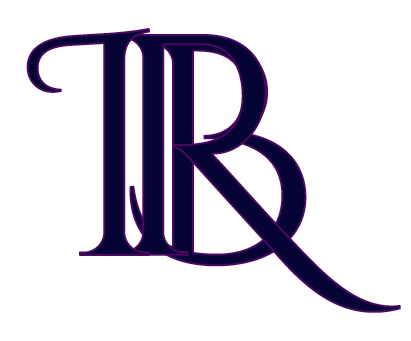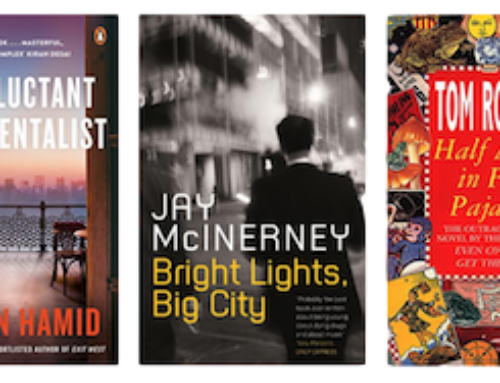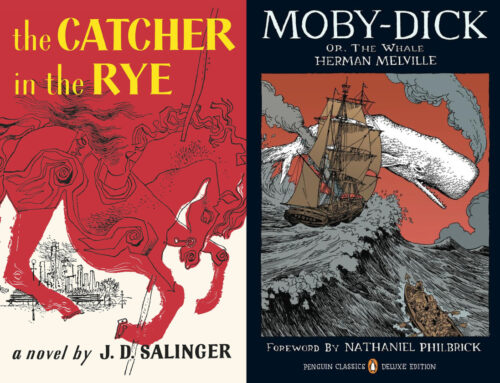Ah, the third person – the omnipresent observer who reigns from afar, all-knowing yet curiously detached. Like a watchful deity or a gossip-hungry neighbor peering through half-closed curtains, the third-person narrative wields power through distance, granting writers authority to shape entire universes and the fates of their hapless inhabitants. Yet even divine vantage points carry hidden perils and limitations. Let us examine this narrative stance – its wonders, its pitfalls, and its intricate ironies – as we have already examined the compelling intimacy of the first person and the perplexing directness of the second.
Infinite Freedom, Limited Connection
The third-person perspective provides a vast canvas. It liberates the narrative from the claustrophobic confines of an individual mind, offering authors a generous expanse:
- Omniscience: The storyteller may choose full knowledge of all characters’ inner thoughts and secrets.
- Objective distance: Writers can step back, providing readers a clear perspective on characters’ flaws, virtues, and follies.
- Multiple viewpoints: Narratives can seamlessly shift from character to character, offering varied insights and broader understandings.
Consider the sweeping narratives of Leo Tolstoy’s War and Peace. Here, the third person deftly roams between battlefields and ballrooms, seamlessly weaving the destinies of a dozen souls without ever losing narrative coherence. The reader is allowed to glimpse, with a smile perhaps, the self-delusions, dreams, and follies of each character.
Detached Irony: Third Person’s Subtle Weapon
Irony flourishes magnificently in the third person. Detached narration can subtly mock, critique, or highlight absurdities, providing a delicious gap between what characters believe and what readers perceive:
- Jane Austen, in Pride and Prejudice, wields third-person irony like a finely honed blade. Readers can understand Mr. Bennet’s sarcastic remarks, Elizabeth’s confident judgments, and Mrs. Bennet’s relentless matchmaking, far clearer than characters themselves do.
- George Orwell’s Animal Farm uses third-person detachment as a powerful vehicle for satire, allowing readers to see clearly the tragic absurdity of the animals’ dreams versus their reality.
As novelist E.M. Forster humorously quipped:
Third-person narration is irony’s most trusted accomplice – always present, rarely implicated.
Indeed, the third person allows writers to both expose and shield, providing a judgmental commentary through strategic distance.
The Challenges of Emotional Distance
Yet, detachment can also become a weakness. Readers may feel disconnected, floating far above the emotional center of a narrative:
- Impersonal narration: Too much detachment can chill emotional connection, leaving readers intellectually engaged yet emotionally indifferent.
- Diffuse focus: A third-person narrative spread across multiple characters risks diluting emotional intensity.
Consider Charles Dickens’s expansive worlds in novels like Bleak House. Though vivid and broad, the narrative sometimes risks scattering readers’ emotional investment across too many richly drawn, yet distant, characters.
Yet Dickens, always masterful, mitigates this by periodically diving deeper into intimate moments, leveraging the vast canvas to magnify emotional depth precisely when needed most.
Limited Versus Omniscient Third Person
Third-person narratives exist along a spectrum from omniscience to limited perspective:
- Omniscient: Narrators possess godlike knowledge, able to freely access the minds and hearts of every character.
- Limited: Narration adheres closely to a single character’s perspective, preserving mystery and suspense.
J.K. Rowling employs limited third-person masterfully in Harry Potter, maintaining suspense by restricting narrative perspective largely to Harry’s own experience, revealing information gradually.
On the other hand, omniscient narration as employed by Gabriel García Márquez in One Hundred Years of Solitude offers a sweeping, mythic quality, giving the reader insight into collective destinies and histories with epic grandeur and subtle irony.
Humor and Omniscient Authority
The third person excels at humor, enabling a narrator to stand slightly apart, yet amused:
- Terry Pratchett’s Discworld series humorously employs third-person omniscience, gently mocking human absurdity through whimsical observations and insightful commentary.
- Douglas Adams, in The Hitchhiker’s Guide to the Galaxy, famously narrates the absurd adventures of his protagonists with wry, detached humor, highlighting human folly in a delightfully irreverent tone.
Such humor benefits tremendously from a narrator’s ironic detachment, enriching narratives by highlighting the gap between character and reader awareness.
When to Choose Third Person
Writers must carefully consider the third-person perspective’s potential benefits and pitfalls:
- Is narrative breadth or intimate detail more crucial?
- Does the story demand omniscient authority or limited viewpoint?
- Will ironic detachment enhance or hinder the reader’s connection?
As Henry James sagely advised:
The third person perspective offers the greatest narrative freedom—but the writer must wield this freedom wisely, knowing precisely when to embrace distance and when to close it.
The Narrative Trio
Across this series, we have journeyed through three distinct yet interconnected perspectives, each with its own ironic charms and humorous quirks:
- First Person draws readers close, whispering directly in their ears, though at risk of becoming overly subjective or self-absorbed.
- Second Person daringly thrusts readers onto center stage, audaciously forcing identification, but risks alienation through excessive intimacy.
- Third Person provides unparalleled narrative freedom, detached humor, and omniscient breadth, yet risks emotional disconnection and dilution.
Each perspective possesses unique capabilities and limitations. The writer’s task is finding the ideal balance. Dostoevsky once remarked, in another context, that profound truth often exists paradoxically. So it is with narrative perspectives: truth arises not from one approach alone but from the skillful blend of intimacy, irony, detachment, and involvement.
Thus, dear writer, weigh carefully which perspective best serves your tale. Choose wisely between intimacy, directness, and omnipresence, always mindful that narrative perspective is not merely a literary tool, but a profound statement about how one perceives the world. After all, to choose perspective is nothing less than to define the truth one intends to tell.






Leave A Comment